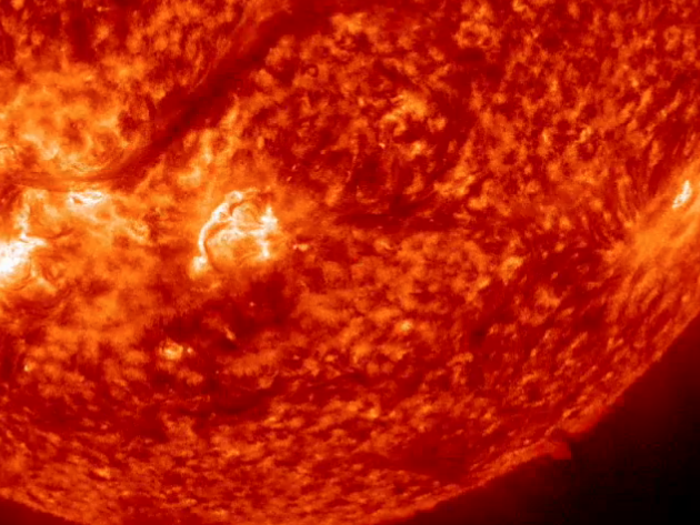6 disastrous 'black swan' events that could happen by 2030
1. Severe pandemic

2. Rapid climate change

The big number in climate change is 2 degrees Celsius. Experts say that if the Earth warms by that amount, humanity will feel the full wrath of climate change: droughts, flooding, rising sea levels. Right now, estimates suggest we're hovering near 1.1 to 1.5 degrees above pre-industrial temperatures.
"Dramatic and unforeseen changes already are occurring at a faster rate than expected," the NIC states. "Rapid changes in precipitation patterns — such as monsoons in India and the rest of Asia — could sharply disrupt that region's ability to feed its population."
3. Euro/EU collapse

The fate of the Eurozone, a 19-country experiment launched in 1999 featuring a brand-new currency, could rest with Greece. For several years now, the nation has expressed interest in exiting the Eurozone. It's a decision NIC says would have serious ripple effects through Europe and the rest of the world.
"An unruly Greek exit from the Eurozone could cause eight times the collateral damage as the Lehman Brothers bankruptcy, provoking a broader crisis regarding the EU's future," the report states.
The prediction bears an uncanny similarity to Brexit, Britain's recent vote to leave the United Kingdom, which was also deemed a black swan and which economists say would inevitably rock global markets.
4. Nuclear war or WMD/cyber attack

Russia is the only country in the world that has more nuclear weapons than the US. The NIC fears that if Russia or another nation with big stockpiles (like Pakistan) — or one that is unstable enough to test the few they have, such as North Korea — actually deploys them, the US could be compelled to use its own.
Countries often keep big stockpiles because they lack adequate cybersecurity. The NIC says "the chance of nonstate actors conducting a cyber attack ... is increasing."
5. Solar storms

The sun spews giant blobs of magnetized plasma several times a week at our planet. It's a phenomenon known as coronal mass ejection (CME), and the NIC explains that if a CME is strong enough, it can "knock out satellites, the electric grid, and many sensitive electronic devices."
It's happened before, including an 1859 event in which telegraph systems in the entire Northern Hemisphere got knocked out. With today's reliance on technology, a powerful event could result in $2 trillion in damages that would require a decade of repair.
6. US disengagement

The US has long considered itself a keeper of the peace around the world. The NIC says that if the US withdraws from global affairs completely, either out of choice or necessity, it'll send shockwaves throughout the world.
Without a second-in-command to step in as a neutral superpower, countries that normally exercise restraint will quickly descend into an extended period of "global anarchy."
Popular Right Now
Popular Keywords
Advertisement